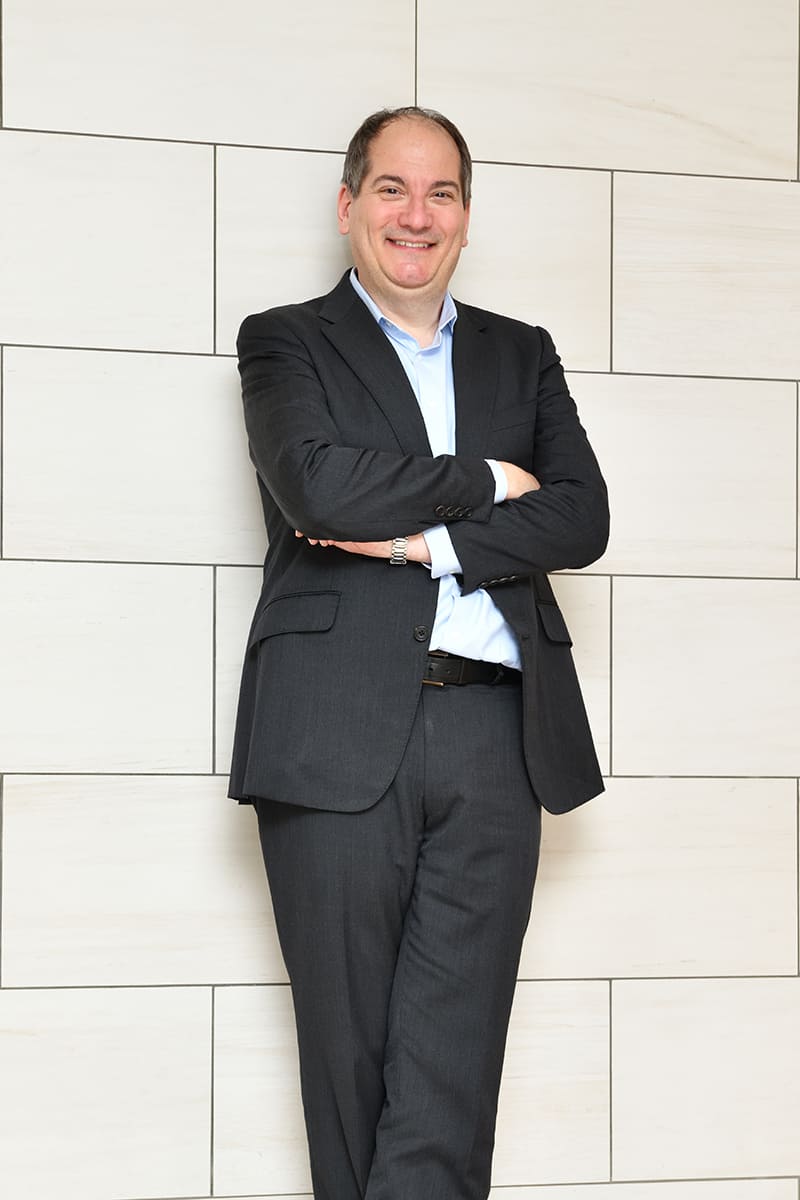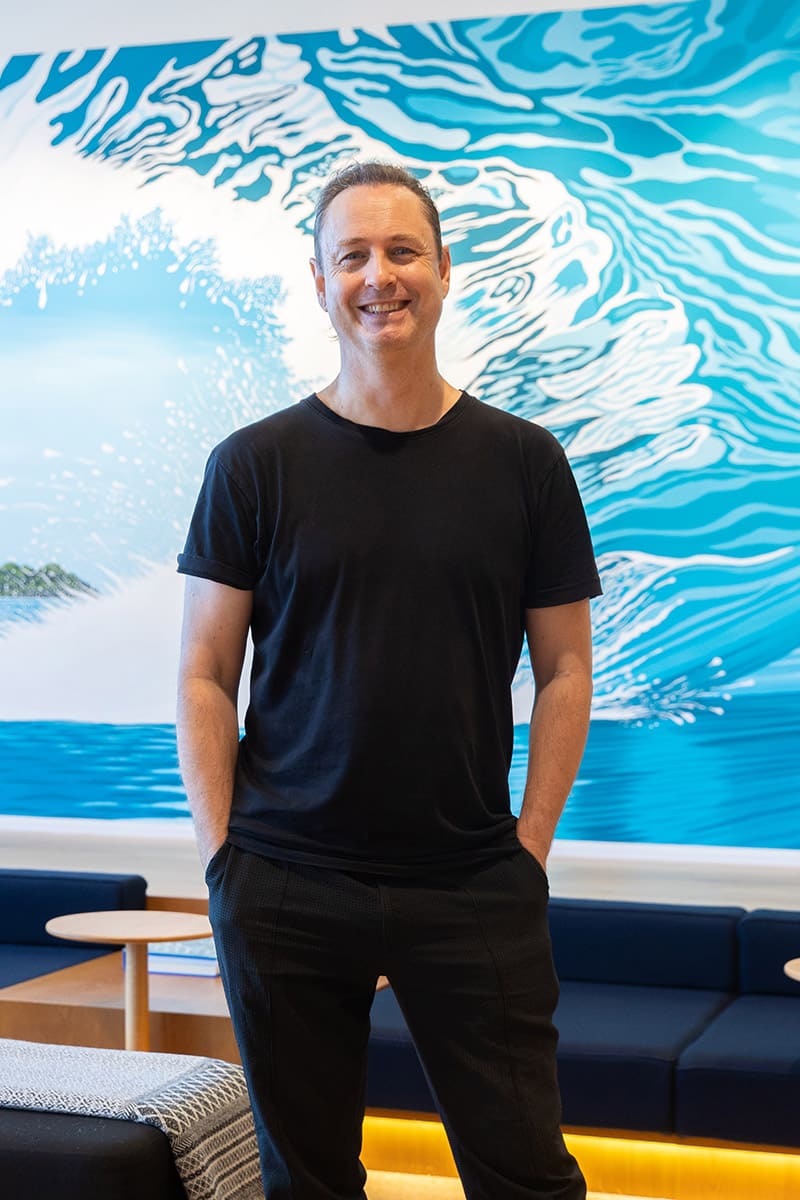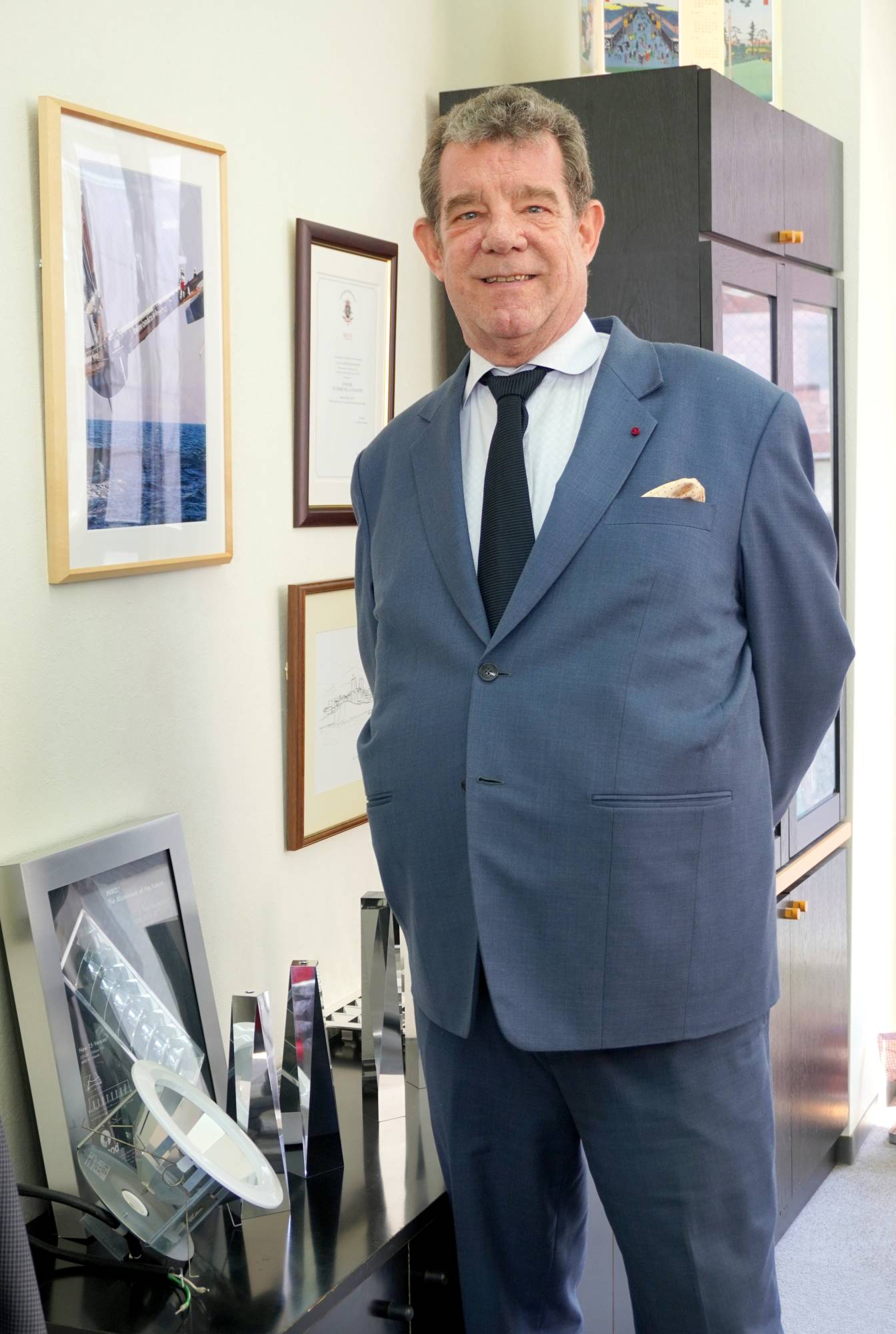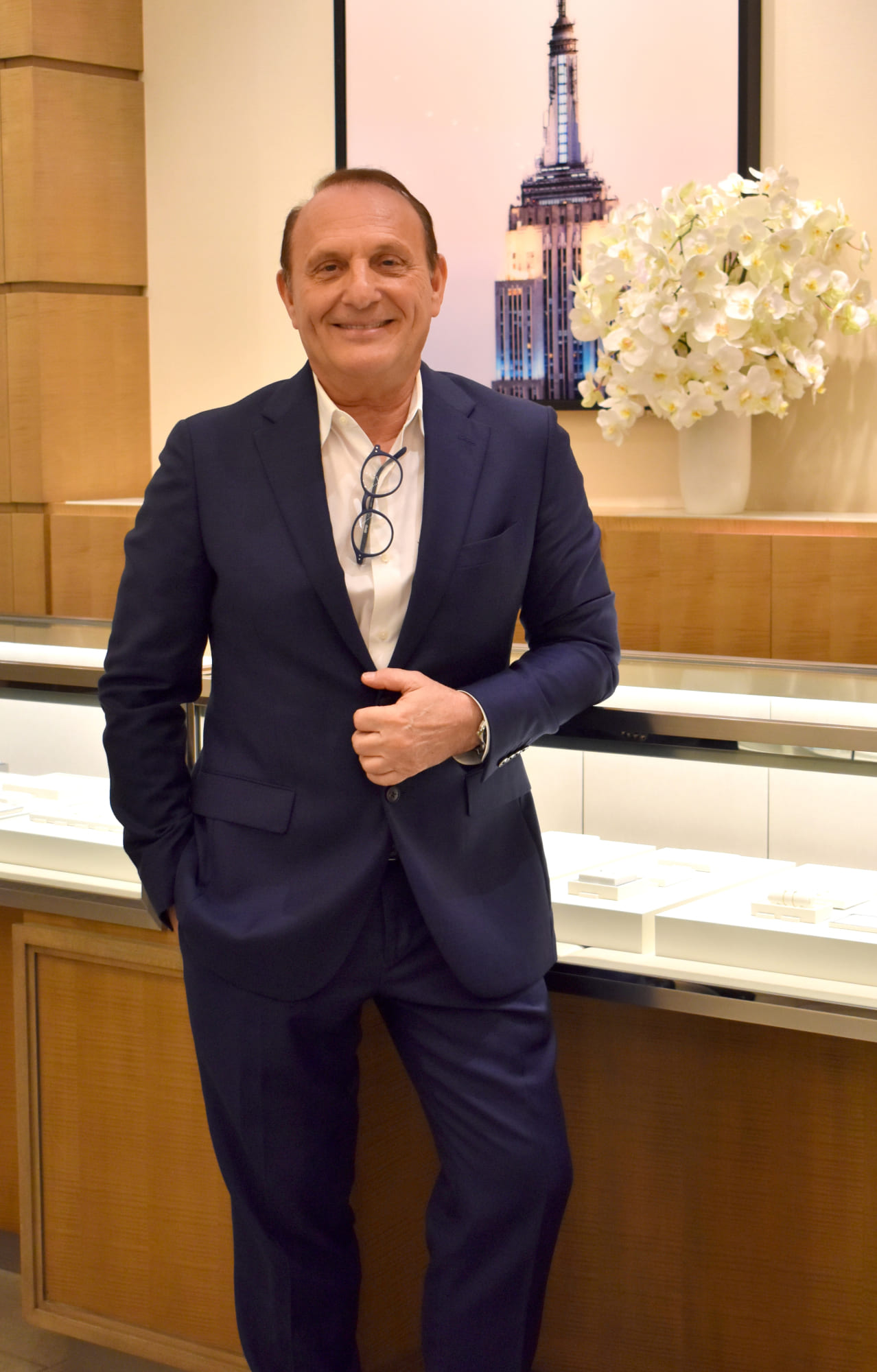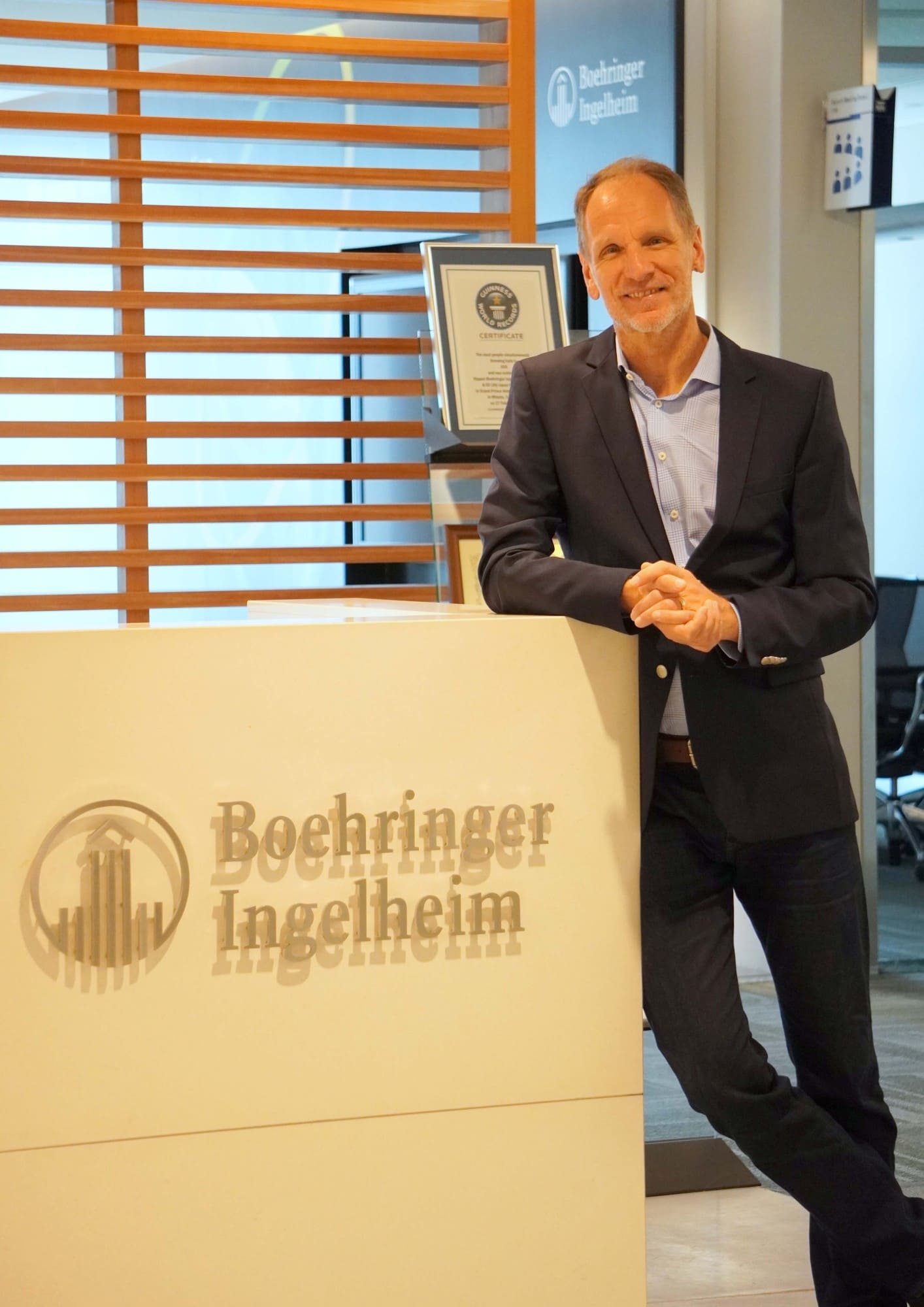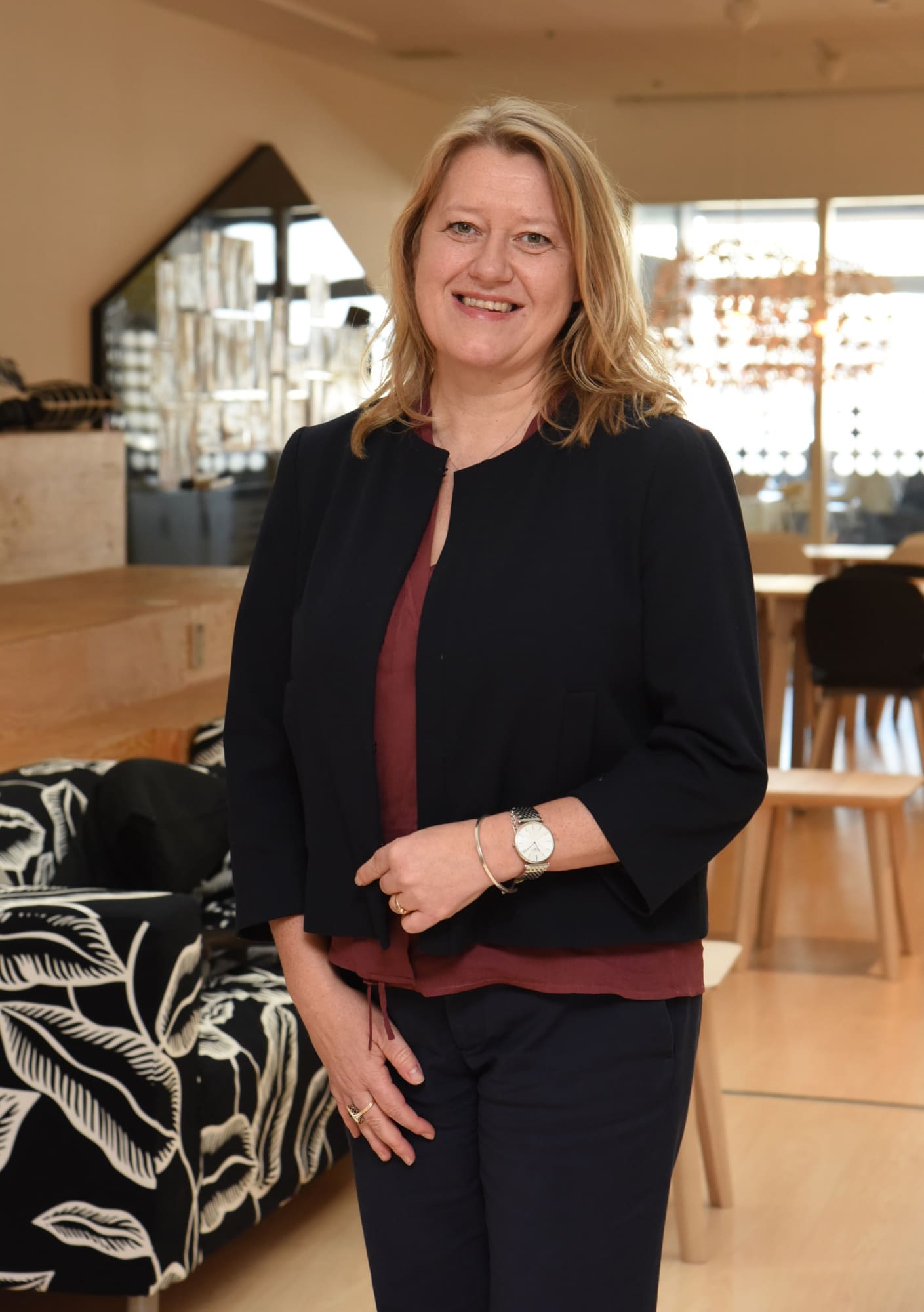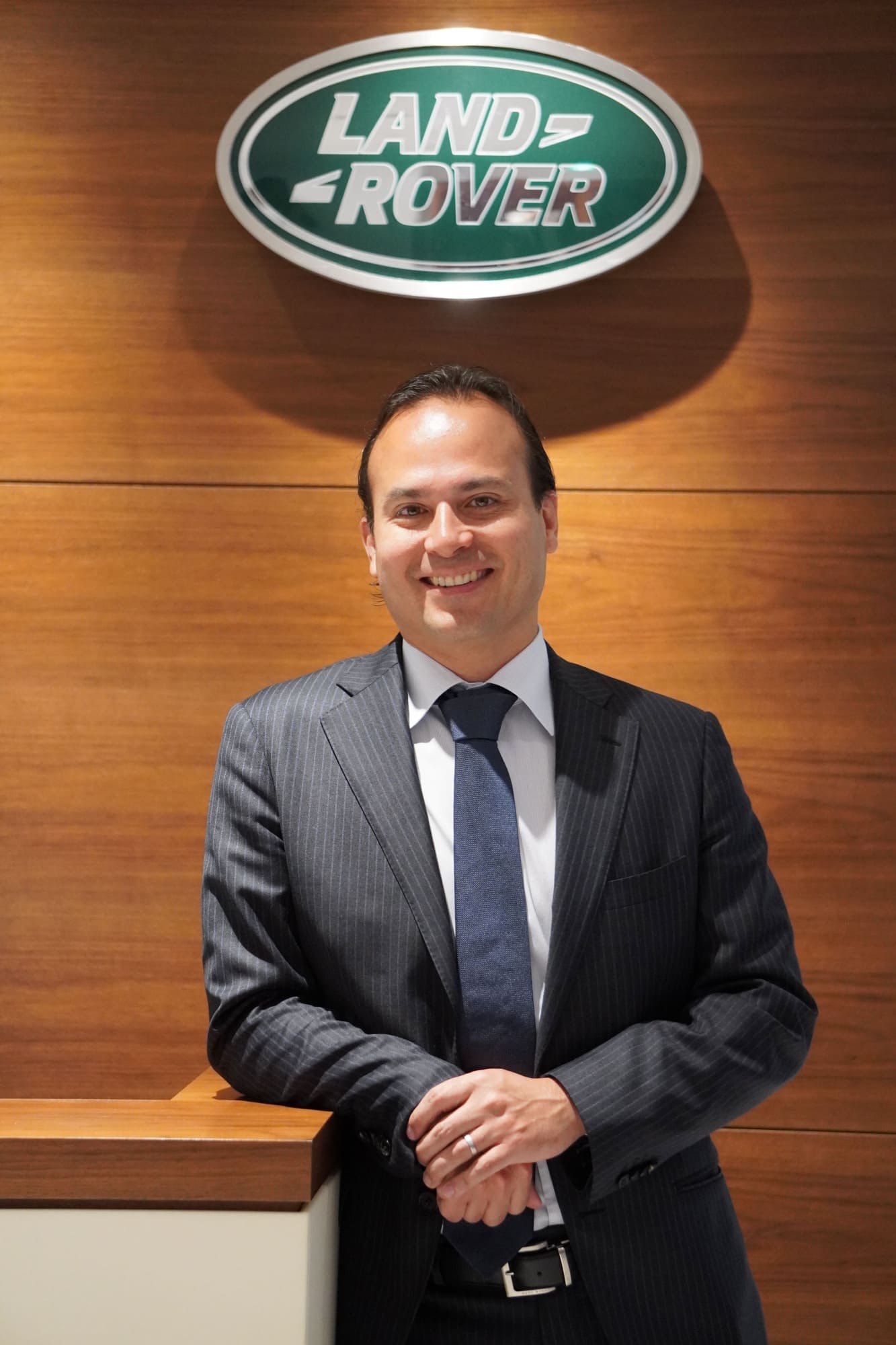
June 23, 2019
Navigating and advancing a unique domestic market
Jaguar Land Rover Japan’s Magnus Hansson on cross-regional challenges
BY JOE MUNTAL
CONTRIBUTING WRITER
- Name: Magnus Hansson
- Title: Representative Director and CEO, Jaguar Land Rover Japan
- URL: https://www.landrover.co.jp/
- URL02: https://www.jaguar.co.jp/
- DoB: Nov. 21, 1974
- Hometown: Tokyo
- Years in Japan: 6
There’s no industry quite as dynamic as the automotive industry.
As global manufacturers constantly adapt to changes in business and regulatory environments while keeping pace with regional market trends, Representative Director of Jaguar Land Rover Japan Magnus Hansson has established a firm footing in Tokyo, developing marketing strategies to meet both international and regional demands.
Hansson joined a Swedish automotive firm after completing university. Sweden, with its advanced presence in the automotive industry, provided Hansson abundant opportunities to launch his international career.
“I was already very interested in the automotive industry at the time,” Hansson said. “It’s a fascinating global business, and I was attracted to the many international opportunities available.”
In a way, Hansson’s Japan post is a return to where his story began. Hansson was born in Tokyo to a Japanese mother and Swedish father, but relocated to Sweden shortly after. When presented the opportunity to work in Japan, Hansson jumped at the chance to experience life in his mother’s home country.
Reflecting on his assignments over the course of his career, Hansson noted how some transitions have been easier than others.
“For instance, Sweden and Hong Kong are different bookends of many scales; whether it be culture, society, density, climate — you name it. But Hong Kong is quite an easy place to live. It’s a very international city and English is prevalent, which makes it an easy city to integrate into,” he said. “On the other hand, moving to Japan is a different ballgame. Society is shaped differently, and due to language barriers and some cumbersome procedures, tasks that should be easy to complete can end up becoming quite complicated.”
After one gets over the initial hump of integration, however, Hansson noted living in Japan comes with many merits, especially in terms of quality of life. “The country is beautiful, and considering its population, the air quality is fantastic. It’s a very safe country and you don’t have to worry about your personal safety, or the safety of your child, which, as a parent, is very important. Unlike in many other countries, you don’t have to be on alert all the time, which makes life here relaxing,” he said.
Hansson and his team are responsible for the sales, marketing, service and distribution of Jaguar Land Rover brands and products in Japan. As a subsidiary of the U.K. head office, Jaguar Land Rover Japan is charged with expanding domestic business and satisfying customers.
As a market, Japan and its idiosyncrasies present distinct challenges for them and international companies in general.
“Japan is a tough market in many aspects,” said Hansson. “Japanese customers are, on average, more knowledgeable of automotive products than average global buyers, which creates stronger demand for us as a manufacturer to deliver quality products. In addition, in terms of its marketing and distribution environments, as well as sales procedures, Japan is a completely unique market. Typically, global companies like to streamline procedures in order to improve efficiency, but Japan never quite fits into this framework, which makes it a challenge to leverage global positioning while retaining the uniqueness needed to satisfy local requirements.”
One quality of Japanese marketing that stands out to Hansson is the relationship between celebrities and products. “In Japan, celebrities are an integral part of marketing. However, global strategists don’t like to use celebrities to sell products, as they see it as how marketing was done in the ’70s and ’80s.”
This unique characteristic of Japanese marketing practices prompted Hansson and his team to form a partnership with star tennis player Kei Nishikori, who is now a Jaguar brand ambassador. Nishikori, a longtime Jaguar fan, initially reached out to Jaguar Land Rover to collaborate with his favorite automotive brand. Thus, the partnership was an organic one, and Hansson, recognizing the significance of such a collaboration, seized on the opportunity to work with Japan’s star tennis player and strengthen the brand’s presence in Japan.
Given global strategists’ hesitation to associate their business with celebrities, Hansson was tasked with persuading his colleagues at headquarters regarding the importance of the partnership. “It was a difficult challenge to convince headquarters on the necessity to take this opportunity to have Nishikori join us,” Hansson said.
Whereas businesses in many markets outside Japan, focus on promoting their corporate values, especially in relation to sustainability and diversity, marketing campaigns in Japan are distinct from their overseas counterparts in that they focus on the “hard sale” of products.
Regional business practices reflect cultural norms and economic circumstances, and Hansson believes this tendency in Japanese marketing is tied to the country’s economic climate. “In general, there is not a lot of organic growth in Japan. While it’s a big and important market, there is no undercurrent of macro growth to ride on, which makes business extremely competitive, with companies relentlessly vying for their competitors’ slice of the pie,” he said.
The company’s Rugby World Cup 2019 partnership exemplifies Land Rover’s comprehensive marketing strategy working in tandem with a global strategy modified for regional differences.
A worldwide partner of the event, Land Rover became the first company to join this year’s Impact Beyond legacy program, that provides thousands of children opportunities to experience the sport through various events across the country.
The automotive company also recently celebrated the release of two new flagship vehicles — the all-electric Jaguar I-PACE, which features a state-of-the-art lithium-ion battery and zero-emission powertrain technology, and the New Range Rover Evoque, a luxury compact SUV and Land Rover’s first vehicle to utilize mild-hybrid electric technology.
Moving forward, Hansson hopes to build upon his team’s achievements and bring about significant change. “I want to make a difference for my team and our stakeholders, developing each individual along the way,” Hansson said enthusiastically.
Tokyo post marks return to birthplace
Magnus Hansson is Jaguar Land Rover Japan’s representative director and CEO. He was born in Tokyo and grew up in Sweden. Having been active in the automotive industry since graduating from university, Hansson has worked for global manufacturers in Sweden, Hong Kong and Canada, arriving at his current position in Tokyo in 2013. To unwind, he likes spending time in nature with his family outside the city. Although he doesn’t subscribe to a life motto, Hansson is a strong believer that “life is what you make of it.”

